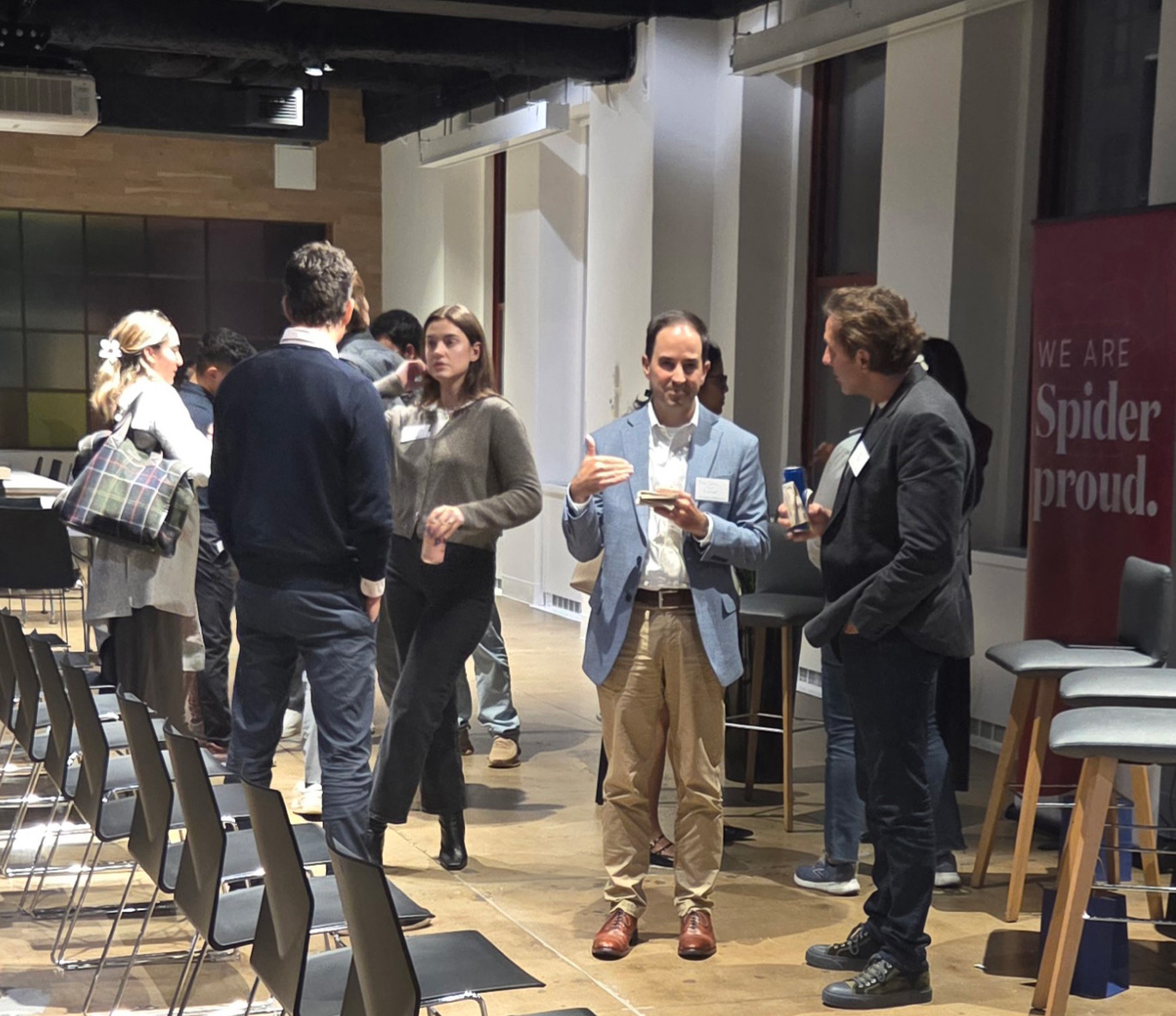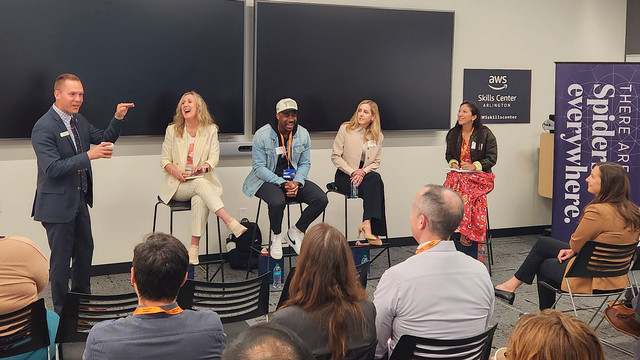UR’s new Alumni Professional Network helps graduates stay on top of their game
Alumni
Spider alumni have traditionally come together for reunions, homecomings, and social events. Now, a new series of gatherings seeks to help Richmond alumni connect professionally, grow their networks, and learn about industry trends from fellow Spiders.
The Alumni Professional Network, helmed by Senior Associate Director Eric Hunter, who joined the University last fall, offers a mix of online and in-person programs for alumni working in a range of industries, such as arts and entertainment, marketing and communications, government, finance, and technology. The sessions, which launched in the spring, include both networking-focused events and panel discussions on current topics. Hunter is also working to enhance the University of Richmond Alumni Network group on LinkedIn with more industry-related content and richer conversations, and hopes it will become a first destination for alumni making career transitions.

"The alumni office has done a great job over the years of creating community among alumni through a diverse set of programming," Hunter said. "What we're looking to do is continue to diversify how we engage alumni and build community through professional, industry-focused programming. It's about content and connections, and we're looking to be the facilitator."
Online component
Let’s Connect, an online networking series, aims to bring together alumni with shared industry interests and provide them with a unique space to expand their networks.
The hour-long events typically consist of four breakout sessions, each with groups of two to four alumni. Participants receive a basic prompt to kick off the conversation. They also share details about their careers and what they hope to gain from the session. After 12 minutes, the groups are reshuffled and the process repeats.
By the end of the event, Spiders have had an opportunity to develop meaningful connections with alumni who share their professional interests, whether they live in the same city, across the country, or around the world. Hunter hopes these relationships will continue to grow.
“I like to say that this is where the conversation starts,” he said, “and then they can take the conversation offline.”
In-person panels
While the Let’s Connect series is solely for networking, the Alumni Professional Network’s panel discussions include a knowledge-sharing component.
The first panel discussion, held in April at the AWS Skills Center in Arlington, focused on fostering an innovative mindset. Entrepreneurial alumni working in product development and software solutions discussed how curiosity, creativity, and collaboration fuel new ideas and turn challenges into opportunities.
"Having a diverse range of alumni and perspectives on the panel, including different class years and career backgrounds, is very valuable,” Hunter said.
Subsequent panels held throughout the fall included an online discussion on social media influencer marketing, an in-person session on maximizing impact through technology integration held at Deloitte in Arlington, and a conversation about how AI is transforming industries held at LinkedIn in New York City. Hunter aims to continue offering two online panels annually — one in the fall and one in the spring — along with in-person events in more locations along the East Coast.
Lee Gimpel, a 1999 graduate and founder of Better Meetings, a meeting design and facilitation company, attended the Innovative Mindset and inTECHgration sessions. He noted that there is a degree of camaraderie and trust that comes from being part of a Richmond alumni group, which he doesn’t find at other professional networking events.
Gimpel said that hearing from panelists from different organizations gave him new ideas to incorporate into his own work helping organizations improve innovation through meetings and conferences. “It was a small enough group that it was easy to approach the speakers afterward and discuss their suggestions more in depth," he said.
But there’s also likely a longer-term benefit from attending these events. “For many of us in the room, a brief conversation one morning might lead to another discussion months later, which could then result in something that really helps me or someone else in the future,” Gimpel said.

